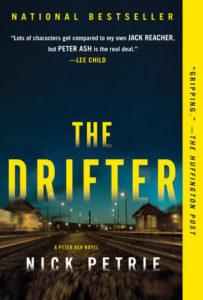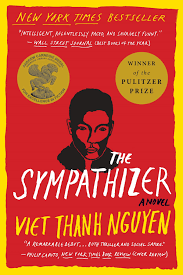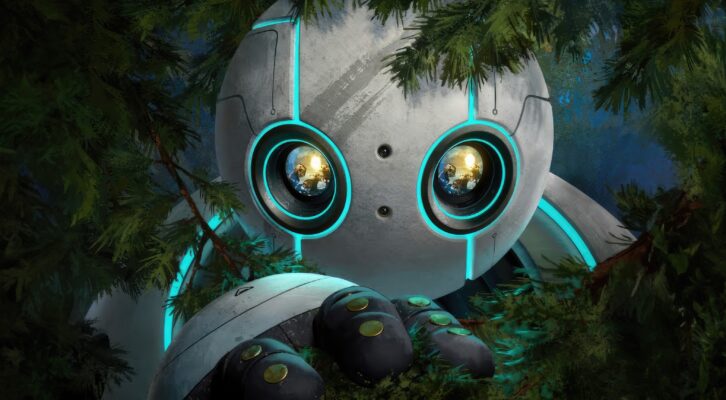My father served two tours of duty in the Marine Corps in Vietnam, and the experience changed his life. He struggled with PTSD and depression, while continuing to live every day by the code of honor and discipline he learned in the Corps. Meanwhile splashing everything he ate, from steak to French toast, with cayenne pepper sauce, treating every food on Earth like an MRE.
War is hell. It’s also a gut-wrenching mystery, a band of brothers, a life-changing gate of fire…and the source of some incredibly compelling fiction. In my experience both as a daughter of a veteran and as a writing instructor working with a veterans’ creative writing workshop, I have been fortunate to get a sideways look at how war impacts the lives of the servicemen and—women who fight for us. Some of my favorite novels offer that same insight—and for that reason alone are worth reading, sharing, and talking about, although they also happen to be great reads on their own merits.
There are so many incredible works of fiction that reflect the veteran and combat experience that it would be impossible to try to list them in one place (unless you’re the New York Times). But I’ve noticed that the mystery and thriller shelves at bookstores are especially full of military men and women, for perhaps obvious reasons: If a novel calls for a super-competent, intelligent bad-ass to solve some crimes for you, it kinda makes sense that your fictional bad-ass might have spent some time in the military. In fact, some of the biggest, best-selling mystery and thriller series are led by main characters whose service has shaped their personalities, their backstories, and their near-superhuman commitment to justice: James Lee Burke’s excellent Dave Robicheaux novels, the Harry Bosch books by Michael Connelly, Lee Child’s page-igniting Jack Reacher books, and almost everything by the redoubtable Tom Clancy are just a few examples. Stop You’re Killing Me has an impressively thorough list of fictional detectives with a record of service.
Here are a few mysteries and thrillers by and about veterans that you might not have already read, and that open up an understanding of how combat experience can shape a story, and its storyteller.

The Drifter by Nick Petrie
The first of Petrie’s three novels about Iraq-veteran-turned-amateur-detective Peter Ash is the place to begin if you aren’t already familiar with Petrie’s work, although the two follow-ups, Burning Bright and Light It Up are also well worth a read (if just for awesome journalist June Cassidy, introduced in book two). Petrie is not himself a veteran, but Peter Ash is a compelling and believable veteran antihero, and his struggles with PTSD after his return from Iraq and Afghanistan are incredibly well rendered. Volatile but still likeable, Ash is a character who captures the reserved pride and everyday bravery that so many veterans wear like new armor when they return home from war.

Youngblood by Matt Gallagher
In Iraq, a young lieutenant named Porter is burdened with tracking down the answers to two separate, but increasingly entwined, mysteries: investigating the deeds of a sergeant with a murky record who might be guilty of war crimes, and uncovering what happened to a missing soldier who may have been killed for falling in love with a woman on the other side of the war. Gallagher, a former Army captain, creates a mystery that’s both unexpectedly funny and heartbreakingly sharp.

The Yellow Birds by Kevin Powers
One of the cleverest elements of Donna Tartt’s famous mystery novel The Secret History is its inverted structure: You know almost from the beginning that a murder took place and that the narrator is somehow involved. What you spend the rest of the novel tearing through page after page to find out is how. Similarly, the central mystery of Powers’s justly-praised novel of the Iraq war is not concealed, but lying in plain sight almost from the beginning. The question that keeps you turning the beautifully written pages isn’t whether twenty-one year-old Private Bartle is guilty of concealing the truth about his comrade Daniel Murphy’s death, but when, and how, his terrible secret will be revealed, and what the consequences will be.

Hystopia by David Means
Brilliant, strange, chilling, unputdownable, this speculative thriller takes place in an alternate-universe United States in which Kennedy survives his assassination attempt only to push America into an even deeper, longer-lasting, and more traumatizing involvement in the Vietnam War. Struggling to integrate their war experiences with their lives back home, veterans in the world of this novel are subject to experimental psychological treatments that promise to erase memories of violence. But violence is the inescapable lure that pulls Hank, a vet attempting to rebuild himself, into the trap of his comrade-in-arms Rake, a killer and a kidnapper whose plans Hank must try to find the strength to undo, even as they’re both tracked by government agents on Rake’s bloody trail.

The Sympathizer by Viet Thanh Nguyen
This Pulitzer Prize-winning espionage novel follows an undercover agent for the North Vietnamese Army, embedded in South Vietnam during the fall of Saigon and subsequently living undercover in Los Angeles. Fast-paced and darkly funny, the book offers a perspective on the Vietnam War decidedly different from what American moviegoers and readers typically see—in fact, in one section, the anonymous main character serves as a consultant on a film that sounds suspiciously like Platoon or Apocalypse Now, and spectacularly fails in his efforts to convince the director to add even a tiny bit of nuance to the film’s vision.

The Dog Stars by Peter Heller
The world as we know it has ended—humanity wiped out by a supervirus—and those lucky or unlucky enough to survive are either insanely competent, or a little bit insane. Or both. Hig, a former pilot, and Bangley, a former Navy SEAL, are among the survivors who are a bit of both, and who become almost reluctant allies in the face of common danger. In researching my own fiction I’ve read a lot of post-apocalyptic novels (and I mean a lot) and Heller’s novel is one of my all-time favorites: Beautiful, stark, often surprisingly humorous, and fueled by hope, as all great end-of-the-world novels are.

















